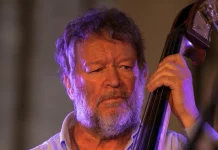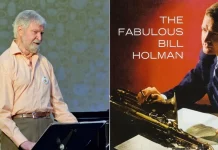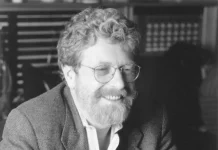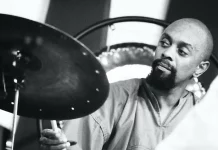When the Chicago AACM (Association for the Advancement of Creative Musicians) organisation was formed in 1965, two of the mainstay groups involved in the project were those of saxophonists Roscoe Mitchell and Joseph Jarman: both musicians destined to become an integral part of The Art Ensemble of Chicago.
The AEOC achieved almost instant popularity when travelling to Europe in 1967 with a line-up of Mitchell, Jarman, Lester Bowie (trumpet) and Malachi Favors (bass), a drummerless group for a while with its members doubling on percussion to negate any perceived rhythmic shortcomings. The two reedmen also introduced the principal of using “little instruments” to produce the extra colour they could bring to the quartet’s radical music.
Born in Pine Bluff, Arkansas in 1937 Jarman had started his musical life as a drummer, turning to the reed family during his time in the army. Subsequently, he would perform on a range of saxophones and beyond, concentrating on alto and tenor. Given his association with the “free jazz” or “avant-garde” movement he was perhaps destined never to achieve the status his virtuosic skills deserved.
He had an adventurous and unpredictable approach to music making, not always necessarily appreciated, even within the jazz world. In his book The Freedom Principle, published in the mid-1980s, John Litweiler waxed lyrical about the saxophonist’s talent, suggesting he had a “nonpareil mastery of the alto saxophone” but recognising “he will remain one of our unacknowledged legislators”.
When performing with the AEOC, Jarman would be one of those in the line-up to don war paint, bringing an element of theatricality to the event but this surface veneer never replaced the serious intent of the group’s presentation. At least one critic has suggested that the reedman was solely responsible for keeping the music on an inventive path rather than taking any suggested easy options.
Jarman’s time in the Art Ensemble initially covered a period from the late 1960s to 1993 when he bowed out to pursue “spiritual” interests, including Zen Buddhism and the martial art aikido, the former having been an important part of his life for some considerable time. The following three years found him rejecting his chosen career, although he did admit, after the event, that his period in musical exile had proved to be quite depressing in many ways.
He returned to the AEOC in 2003, having performed with the likes of Leroy Jenkins, Myra Melford and Marilyn Crispell in the interim. He picked up more or less where he left off, allowing for the fact that Lester Bowie had passed away a few years earlier and Malachi Favors would follow him in January 2004. But of course, the principles inherent in the band were still firmly in place.
Joseph Jarman died in Englewood, New Jersey, 9 January 2019, leaving behind an impressive recorded legacy with AEOC but only a dozen albums where he took over the role of leader. For many attuned to his undoubted prowess he will always be a leader in his chosen field.
























